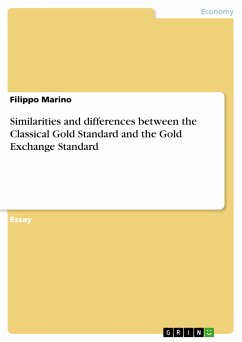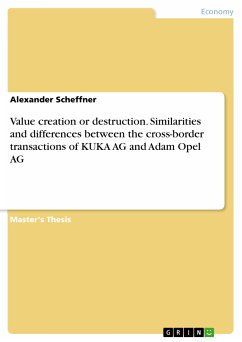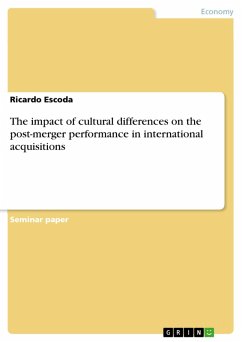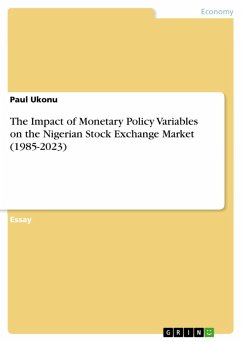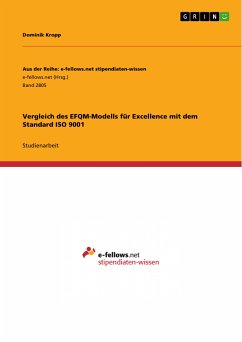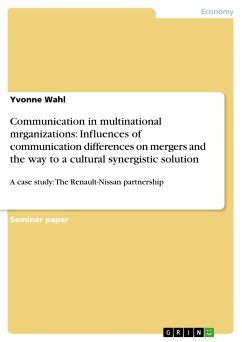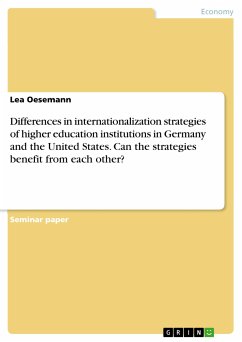Essay from the year 2015 in the subject Business economics - Economic and Social History, grade: 29/30, , language: English, abstract: Gold is definitely one of the most reliable, storable and easily recognizable means of exchange. For these and other virtues, this precious metal has been used as a form of money since the earliest populations, but it's only from the late nineteenth century that gold represented an international currency essential for the needs of a world economy more and more integrated. By fixing its national currency in terms of a specific weight of fine gold, each country could determine a unit of account in which all other forms of money are convertible, creating in this way an international system of fixed exchange rates. This leads to an important advantage (in terms of globalization): the value of a domestic currency does not depend on its demand/supply, but on the quantity of gold pegged to it, being in this way "standardized". Historically, the gold standard system was divided in two different periods: the classical gold standard (1870-1914) and the gold-exchange standard (1922-1930s). These systems do not differ only for chronological reasons, but also for their structure, the impact they had on the world economy and the causes that determined their failure.
Dieser Download kann aus rechtlichen Gründen nur mit Rechnungsadresse in A, B, BG, CY, CZ, D, DK, EW, E, FIN, F, GR, HR, H, IRL, I, LT, L, LR, M, NL, PL, P, R, S, SLO, SK ausgeliefert werden.

